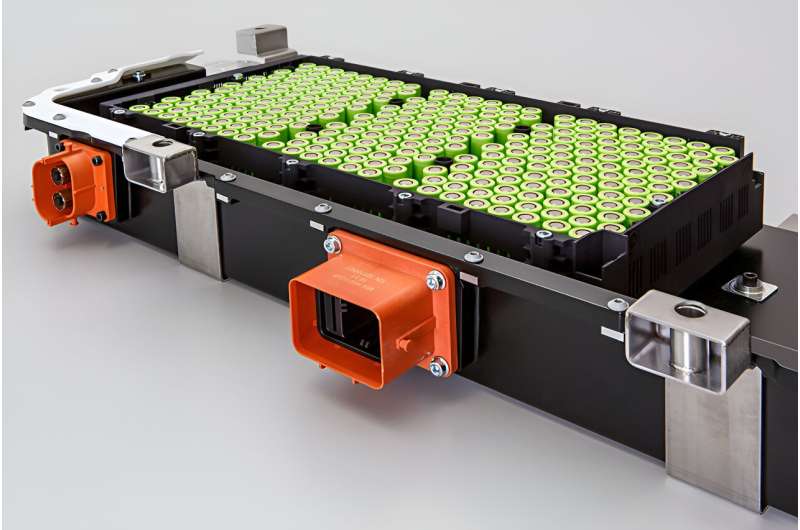by Anke Zeidler-Finsel, Fraunhofer-Institut für Betriebsfestigkeit und Systemzuverlässigkeit LBF

Scientists at the Fraunhofer Institute for Structural Durability and System Reliability LBF are developing battery housings that are as light and recyclable as possible, including those made of plastic for e-mobility.
For structural components to be successfully recycled, they must be easy to dismantle and suitable for the material flow to make sorting as efficient as possible. The resulting material flows should be used as efficiently as possible and processed into high-quality recyclates.
Using comprehensive analytics, the researchers at Fraunhofer LBF can record the quality and possible batch differences of the materials. This serves as a starting point for targeted material adaptation as part of the R-strategies for use in demanding and highly stressed applications. Adapted additives can improve quality along the entire value chain.
Repurposing old batteries—an opportunity for the industry?
In the "CIRCULUS—sustainable battery system for the energy transition and new business models" project, the recycling and use of recyclates in battery housings as well as the reuse of old battery cells were investigated. The results show that the battery cells they contain usually still have sufficient capacity and performance at the end of the vehicle's life to be used as stationary power storage in a second life.
"This allows us to recycle the materials used and, among other things, enables the resource-intensive battery cells to be used sustainably," says Eva-Maria Stelter, scientist at Fraunhofer LBF and CIRCULUS project manager.
Sustainable development thanks to an interdisciplinary approach
The use of previously used battery cells from former traction storage systems in second-life applications is a complex transformation process.
"In order to master this, a transdisciplinary approach is required to discuss the relevant challenges and issues in all their complexity. The different perspectives of various scientific disciplines regarding economic, ecological, and social aspects must be considered," explains Dr. rer. sust. Dominik Spancken, the first doctor of sustainability sciences in Germany.
More information: A second life for used batteries from electric vehicles: www.lbf.fraunhofer.de/content/ … ry-electric-cars.pdf
Provided by Fraunhofer-Institut für Betriebsfestigkeit und Systemzuverlässigkeit LBF
Citation: Developing recyclable lightweight battery housing and a second life for old battery cells (2024, June 6) retrieved 6 June 2024 from https://techxplore.com/news/2024-06-recyclable-lightweight-battery-housing-life.html
This document is subject to copyright. Apart from any fair dealing for the purpose of private study or research, no part may be reproduced without the written permission. The content is provided for information purposes only.
